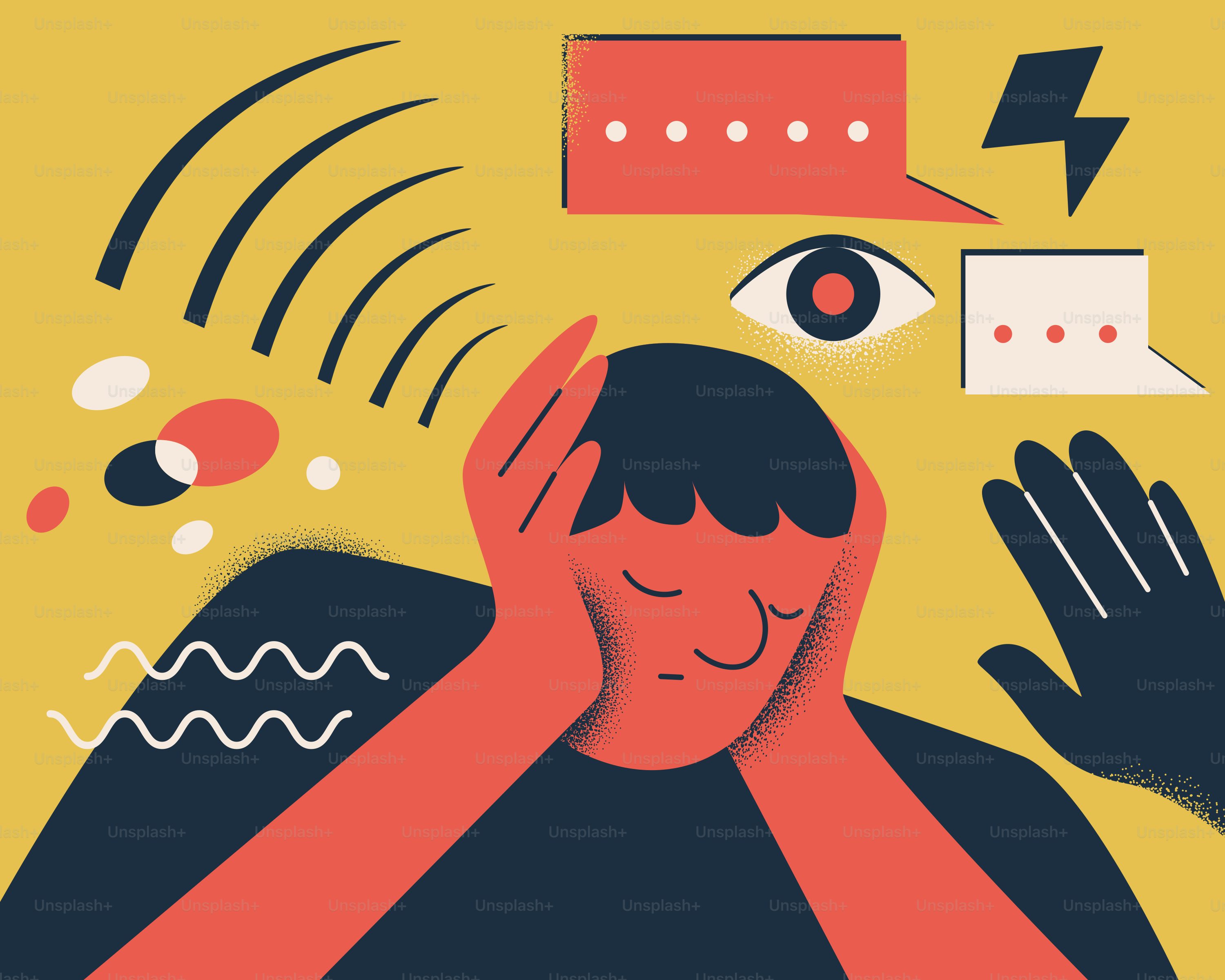
While it may not seem that way when you're presenting for the thousandth time in a work meeting, anxiety can be useful. It prepares you to respond to threats by giving you energy and focus to spring into action. For example, if you hear a sound behind you while walking at night, you'd likely turn toward the sound with muscles tensed. You'd prepare to fight or run away if something emerges from the dark. Or you might keep still in hopes that you go unnoticed (it is dark after all). So where does this helpful trait go wrong?
The Psychology of Anxiety
Anxiety sometimes shows up at the most useless times because you can't always tell when a threat is real. For example, you feel anxiety when watching a movie even though it is fictional. But it gets worse. When your anxiety is out of control, you might do things that make it feel unbearable.
First, you might predict the worst outcome possible ("I'm going to mess up the big presentation at work and get fired"). Next, you start to get hyper-focused on the thing that has triggered your anxiety, perhaps thinking about it while walking the dog or trying to fall asleep. Then, to make matters worse, you might get anxious about your symptoms ("I wonder if they can see my hands shaking"). Yup, you get anxiety about your anxiety. At this point it all becomes too much and you just want to get away ("Maybe I can say I'm sick to get out of the presentation"). If you can't get away, you try to feel safer, perhaps by sitting in the corner of the room and making yourself small. And, surprise surprise, it backfires and makes you feel even worse.
Practical CBT Techniques for Managing Anxiety
So if the things that you tend to do when you get anxious don't help, what should you do instead? Here are three CBT techniques to try:
- Put your anxiety on trial.
- Talk yourself down.
- Control your breathing.
Put Your Anxiety on Trial
Your anxiety has refused to pay the rent for living in your head, so it's time to take it to court. But first, you must gather evidence for your case. Here is how you do it:
- Write down the thing your anxiety is predicting.
- Ask yourself: what evidence is there that this will happen?
- Then ask yourself: what evidence is there that this might not happen?
- Review the evidence and decide if the threat is as bad as your anxiety claims.
If the evidence supporting your anxiety seems stronger, call for backup. Ask a friend or family member to join your ace legal team and help you find more evidence against your anxiety.
Prediction: I'm going to bomb the presentation and get fired
| Evidence For | Evidence Against |
| I messed up my first presentation at this company. | My boss said that it was ok, everyone knew it was my first time. |
| I'm bad at presenting. | No one at the company has been fired over a bad presentation. |
| I have done other presentations with my team and they went ok. |
Verdict: I don't like doing presentations, but I will probably be ok and I'm not likely to be fired.
Talk Yourself Down
Your anxiety always fixates on the worst possible outcome. Consider other outcomes by using the following questions:
- What’s the worst possible outcome?
- What’s the best possible outcome?
- What’s the most likely outcome?
Here are some example responses:
- I do a terrible presentation and get fired on the spot.
- I deliver a great presentation and get promoted.
- I get through my presentation while most people stare at their phones and laptops.
Control Your Breathing
When you get anxious, you might find that you breathe too quickly or hold your breath. If you notice that your breathing is unusual, try the following:
- Place your hand on your stomach.
- Inhale deeply through your nose while counting to 4 in your mind. You should feel your stomach grow bigger.
- Pause briefly and then exhale through your mouth while counting to 6 in your mind. You should feel your stomach contract.
- Repeat the breathing until your anxiety feels lower.
Conclusion
Remember, anxiety is normal. But it can sometimes get out of control. Strategies to regain control only work if you implement them. For example, when approaching a situation that makes you anxious, add a reminder in your calendar to put your anxiety on trial the day before the event. And if you found these tips useful, working with a therapist can help you to learn even more strategies for your most difficult problems.
Book a free consultation session today.
References
Beck, J. S. (2020). Cognitive Behavior Therapy, third edition: Basics and Beyond. Guilford Publications.



